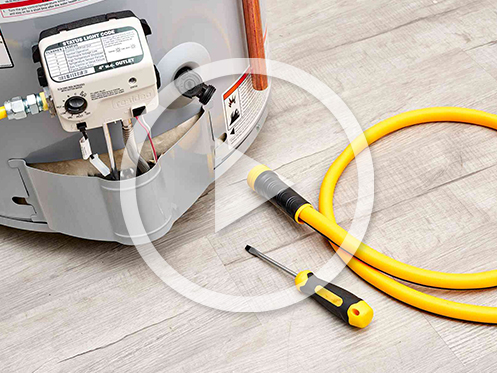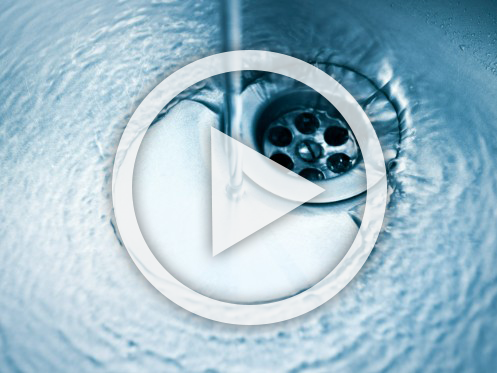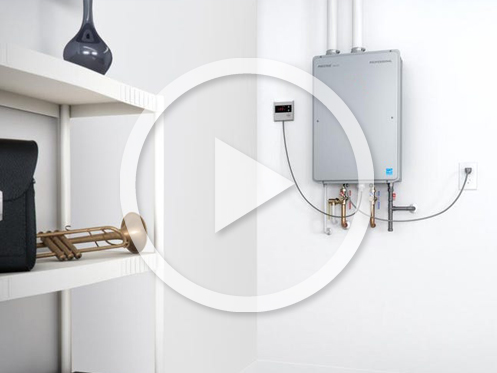Updated January 18, 2024
Leaky faucets are among the most annoying plumbing problems within households. For many people, few things are more irritating than that constant dripping sound when concentrating, sleeping, or speaking. The sound of a leaking faucet is annoying and can have a devastating impact on the home and the environment. According to the Environmental Protection Agency, household leaks waste around 1.0 trillion gallons of water yearly. Within the house itself, this waste can genuinely add up. According to the United States Geological Survey (USGS), small leaks within the home can waste 3 gallons of water daily, and significant faucet leaks can waste 30 gallons daily. This waste from a leaky faucet can increase your water bill by over 10% each month.
In addition, the excess water can eventually damage wood in your walls and flooring and create a moist environment that encourages mold or mildew growth. Dripping water can cause rust, mineral stains, or buildup, damaging sealants and eventually requiring a sink replacement. As you can see, a leaky faucet can be much more than the annoying plinking sound of water. Looking at some of the leading causes of leaky faucets can help you make an informed decision on choosing the right plumber to correct the issue.
What Are the Reasons for a Leaky Faucet?
Water should stop flowing entirely once you turn the faucet off after use. A leaky faucet indicates an underlying problem. While it might feel tempting to disregard a few leaks and try to become accustomed to the sound of dribbling water, this is the last thing you should do. Reasons for a dripping faucet range from standard to rare and serious.
Water Pressure
Water pressure is the force by which water enters your home from the water main line. Scientists measure water pressure in pounds per inch (PSI). Standard water pressure for a home pipe system can range between 30 and 80 PSI. However, many faucets perform best when water pressure falls between 45 and 55 PSI. Water pressure far exceeding this range can force moisture through the faucet even if the faucet’s valve is closed. Other signs of water pressure problems include faucets that only drip water during certain times, when the handles turn a certain way, or when you turn on other fixtures in the home. Small leaks in the faucet can eventually lead to pinhole leaks in the piping that worsen over time. If you suspect a water pressure issue, a professional can perform tests using a gauge and adjust as needed.
Damaged Cartridge
A cartridge is a valve that monitors water flow into the faucet spout. The internal elements inside these cartridges can wear down over time, causing the cartridge to lose its ability to stop the flow of water when the handle is in the closed position. If you notice water constantly trickling from the spout, it is often a sign that you need a new cartridge.
Malfunctioning O-Ring
Most faucets consist of a spout, handle, and base. The O-ring is a small disc that helps keep extended elements like the spout or handle firmly in place. This disc is usually attached to the stem screw. The purpose of the O-ring is to create a watertight seal on the juncture between the spout and the faucet base or the junction between the handle and the base. However, the O-ring can crack or wear out over time. When this happens, water may not flow from the spout as intended. If you notice water dripping from the handle or leaking from the base, a lousy O-ring is often the culprit.
Broken Washer
A broken washer can also cause a leaky faucet. Washers rest against the valve seat. Throughout frequent use, friction can cause the washer to wear out or deteriorate. This deterioration causes leaking. Moreover, a washer that is the wrong size or improperly installed can also cause your faucet to leak. For this reason, it is essential to let a professional repair faucets.
Corroded Valve Seat
The valve seat is a component that connects the faucet to the spout. Due to frequent use, sediment can accumulate in the valve seat. This sediment may then corrode the seat, causing it to deteriorate and leaking water. A damaged valve seat could be to blame if you notice leaking near the spout or nozzle.
Broken Seal
Faucet seals help prevent water from leaking through the fixture. The typical faucet has both inlet and outlet seals. If the seals wear out, water will eventually seep through the cracks. Water high in sediment can also speed up the deterioration of your faucet seals.
Broken Plumbing Pipes
Broken pipes can also cause your faucet to leak. If you hear running water in your walls, smell sudden unpleasant odors near fixtures, or notice dampness on walls or flooring, you may have damaged plumbing pipes. Since plumbers have undergone training to assess and repair the issue, contact a plumbing service immediately before further damage occurs.
Loose Parts
Your faucet also comprises various connectors and fittings far beyond sight or reach. These nuts, bolts, and fittings can become loose with time or age. Loose connectors can cause leaks in the faucet and at the point of juncture, so it is essential to call a plumber with the right tools to quickly repair these parts before the water spillage damages your property.
Why Do I Need a Plumber to Fix My Leaky Faucet?
Given the numerous possible reasons for a leaky faucet, it is clear that fixing your faucet is often much more than grabbing a wrench and twisting away. Attempting to tackle the issue yourself can cause even more plumbing problems. Indoor plumbing is a complex network of valves, pipes, tanks, and fixtures. A plumber has specialized training for installing and repairing each of these parts. Reasons you need a plumber include safer repairs, prevention of water damage, and access to professional equipment that does the job.
Safer Repairs
Plumbers prioritize knowledge and safety. They have extensive training in plumbing systems, building codes, and local regulations. By attempting to fix the problem yourself, you could compromise your safety by installing the wrong part or even rigging the system in a way prohibited in your local jurisdiction. It is better to allow a plumber to fix things correctly. In addition, plumbers know exactly how to diagnose unseen problems like burst pipes. They can access the main line supply, shut-off valves, and pipelines to restore your plumbing to excellent condition.
Avoiding Water Damage
Incorrect repairs can result in water damage. For example, leakage from high water pressure or damaged supply lines can result in flooding if not addressed correctly. Similarly, leakage from a drainpipe can damage walls or flooring if handled improperly. A plumber has the expertise to test your system for serious issues and complete all necessary repairs.
Professional-Grade Tools and Equipment
Many of the best plumbing tools and equipment are accessible to licensed professionals only. You cannot simply walk into a hardware store and get these supplies. Since plumbers keep these supplies on hand as tools of the trade, hiring a plumber means that your home will benefit from the latest techniques and technology. And because plumbers use these tools daily, they have more expertise than untrained individuals can hope to achieve independently.
Contact Us Today
No one should have to tolerate the irritation and potential damage from a leaky faucet. Golden Rule offers homeowners faucet evaluation and repair. Our plumbers can complete troubleshooting and provide pipe leak repair, slab leak repair, and maintenance for all fixtures and drains. We also specialize in sump pumps and water heaters. Contact Golden Rule today for all your plumbing needs.
Contact Us Today for Faucet Service!
If you found this post helpful, check out some other budget-saving tips:



